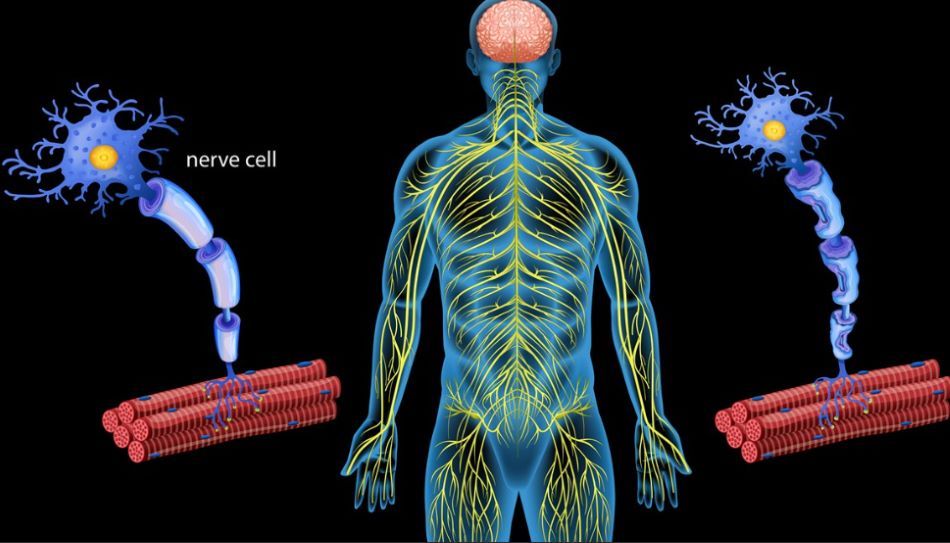Managing Multiple Sclerosis in Individuals Aged 55 and Above: A Comprehensive Review
Authors: Óscar Fernández*¥1,2, Per Soelberg Sörensen3,4, Giancarlo Comi5,6, Patrick Vermersch7, Hans-Peter Hartung8,9,10, Letizia Leocan5,6, Thomas Berger11,12, Bart Van Wijmeersch13,14, Celia Oreja-Guevara¥15,16
1Departament of Pharmacology, Faculty of Medicine; Institute of Biomedical Research of Malaga (IBIMA), Regional University Hospital of Malaga, Malaga, Spain. 2Department of Pharmacology and Pediatry, Faculty of Medicine, University of Malaga, Malaga, Spain. 3Danish Multiple Sclerosis Center, Department of Neurology, Copenhagen University Hospital, Rigshospitalet, Copenhagen, Denmark. 4Copenhagen and Department of Clinical Medicine, Faculty of Health and Medical Sciences, University of Copenhagen, Copenhagen, Denmark. 5Department of Neurorehabilitation Sciences, Multiple Sclerosis Centre Casa di Cura Igea, Milan, Italy. 6University Vita-Salute San Raffaele, Milan, Italy. 7Univ. Lille, Inserm U1172 LilNCog, CHU Lille, FHU Precise, Lille, France. 8Department of Neurology, Medical Faculty, Heinrich-Heine-University, Düsseldorf, Germany. 9Brain and Mind Center, University of Sydney, Sydney, NSW, Australia. 10Department of Neurology, Palacky University Olomouc, Olomouc, Czechia. 11Department of Neurology, Medical University of Vienna, Vienna, Austria. 12Comprehensive Center for Clinical Neurosciences & Mental Health, Medical University of Vienna, Vienna, Austria. 13University MS Centre, Hasselt-Pelt, Belgium. 14Rehabilitation and Multiple Sclerosis (MS), Noorderhart Hospitals, Pelt, Belgium. 15Department of Neurology, Hospital Clínico Universitario San Carlos, IdISSC, Madrid, Spain. 16Department of Medicine, Faculty of Medicine, Complutense University of Madrid, Madrid, Spain.
¥ Both authors contributed equally to this work
Abstract
Multiple Sclerosis (MS) management in individuals aged 55 and above presents unique challenges due to the complex interaction between aging, comorbidities, immunosenescence, and MS pathophysiology. This comprehensive review explores the evolving landscape of MS in older adults, including the increased incidence and prevalence of MS in this age group, the shift in disease phenotypes from relapsing-remitting to progressive forms, and the presence of multimorbidity and polypharmacy. We aim to provide an updated review of the available evidence of disease-modifying treatments (DMTs) in older patients, including the efficacy and safety of existing therapies, emerging treatments such as Bruton tyrosine kinase (BTKs) inhibitors and those targeting remyelination and neuroprotection, and the critical decisions surrounding the initiation, de-escalation, and discontinuation of DMTs. Non-pharmacologic approaches, including physical therapy, neuromodulation therapies, cognitive rehabilitation, and psychotherapy, are also examined for their role in holistic care. The importance of MS Care Units and advance care planning are explored as a cornerstone in providing patient-centric care, ensuring alignment with patient preferences in the disease trajectory. Finally, the review emphasizes the need for personalized management and continuous monitoring of MS patients, alongside advocating for inclusive study designs in clinical research to improve the management of this growing patient demographic.
© 2024 Frontiers Media S.A. All rights reserved.







